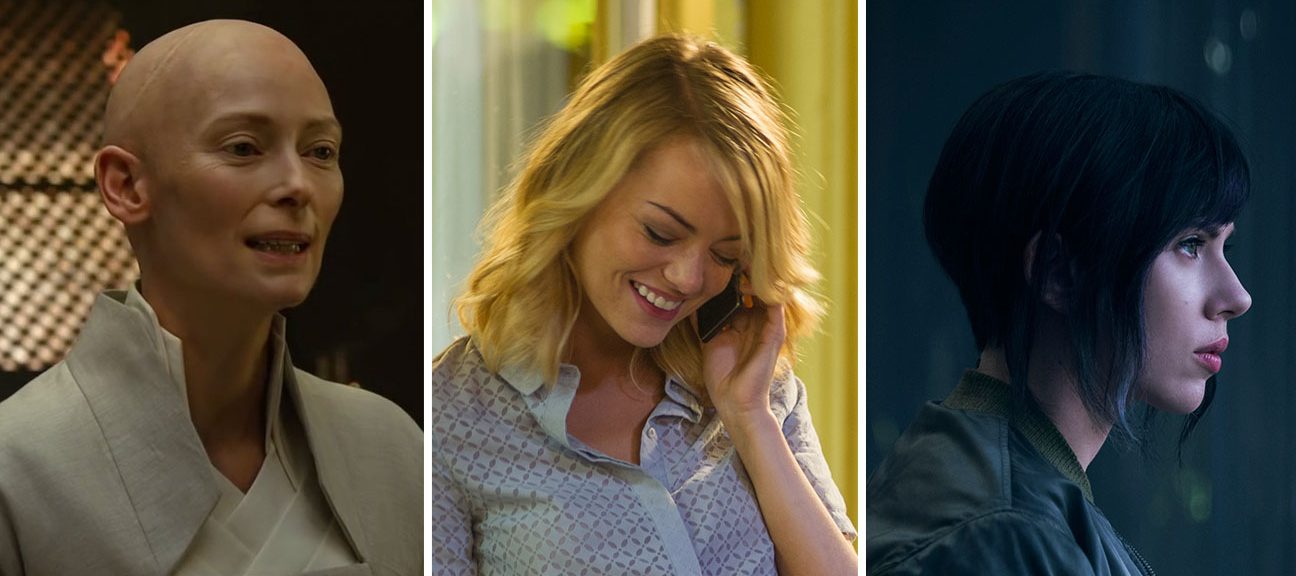Opinion: White Washed Out

Annette Choi ’17 / Emertainment Monthly Staff Writer
“They sent us their most dedicated, accurate and hard working representatives. Please welcome Ming Zhu, Bao Ling and David Moskowitz,” Chris Rock read off the screen, “If anybody’s upset about that joke, just tweet about it on your phone that was also made by these kids.” Cue uncomfortable laughter from well-dressed white people of the Academy. Also cue a collective cringe from Asian-Americans everywhere.
Constance Wu, who plays Jessica Huang on the comedy series Fresh Off the Boat, took to Twitter and called Rock out for the “reductive” and “gross” joke, along with NBA player Jeremy Lin and many others. The Academy eventually published an apology on Rock’s behalf, but George Takei, actor, director, activist and author best known for his performances in the Star Trek films, remained unconvinced at the “bland and corporate response.”

The controversy regarding whitewashing Asian characters is seemingly never-ending. Sure, green-eyed, blond-haired Emma Stone was cast as the quarter-Chinese, quarter-Native Hawaiian fighter pilot Allison Ng in Aloha. Yes, white actress Mackenzie Davis played NASA employee Mindy Park, a conceived Korean-American astronaut in The Martian. Who cares?
You should.

The latest dose of whitewashing in Hollywood takes the form of Doctor Strange and Ghost in the Shell. The controversy regarding Doctor Strange revolves around the decision to cast English actress Tilda Swinton as The Ancient One, originally a Tibetan-born man in the comic. By casting Swinton as the Ancient One, the plot has now essentially turned into a white person trekking through Tibet, experiencing Tibetan culture, encountering Tibetan people and then getting mentored by another white person.

This brings us to Ghost in the Shell. One of the producers of Ghost in the Shell, Steven Paul, told Buzzfeed that he thinks the public will be satisfied with the decision to cast Scarlett Johansson as “The Major” aka Major Kusanagi. He says the choice was a conscious one, made in hopes of taking a more international and inclusive approach to the manga. “We’re utilizing people from all over the world,” he said, “There’s Japanese in it. There’s Chinese in it. There’s English in it. There’s Americans in it.” Paul further justified the decision by stating that he doesn’t believe Ghost in the Shell is a Japanese story. Further stating that Ghost in the Shell “wasn’t just focused on [the] Japanese; it was supposed to be an entire world.”

However, with Ghost in the Shell, Paramount and Dreamworks have decided to keep all the definitive characteristics of the manga’s culture and setting (the Japanese antagonist, women in kimonos) as well as Major Kusanagi herself (dark eyebrows, short, black hair)—everything except her ethnicity, that is.
Many have already associated Doctor Strange and Ghost in the Shell with other culturally insensitive blockbuster fails like Pan and The Great Wall. Whitewashing minority characters might not seem like a big deal, especially if it isn’t your own ethnicity that’s being painted over. It may be irrelevant to you that Rooney Mara was selected for the part of Princess Tiger Lily or that Matt Damon got to swoop in, play the white hero and save China. But it’s becoming increasingly difficult to believe that there isn’t a greater message that’s being conveyed by these casting decisions.